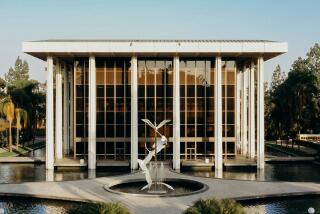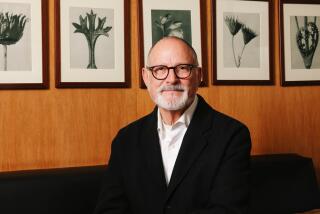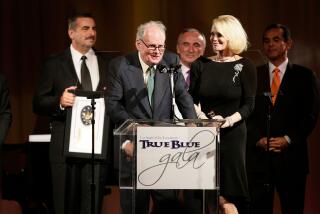Avery Fisher; Philanthropist in Music, Pioneer in Electronics
NEW YORK â Avery Fisher, an electronics industry pioneer and philanthropist for whom a New York City concert hall was named, has died. He was 87.
Fisher died Saturday at a New Milford, Conn., hospital of complications from a stroke. He was an influential figure in New York music circles, sitting on the boards of the New York Philharmonic, the Chamber Music Society of Lincoln Center and the Marlboro Festival.
Lincoln Centerâs Philharmonic Hall was renamed Avery Fisher Hall in 1973 after Fisher donated $10.5 million.
âSomeday, theyâll say: âWho the hell was Avery Fisher?â It doesnât bother me,â Fisher told the Los Angeles Times at the time he made the gift.
After graduation from New York University in 1929, Fisher worked in advertising and publishing before making his fortune in electronics.
The amateur violinist started out building radios simply to improve sound quality for his own enjoyment. By 1937 he had become so adept at it that he founded the Philharmonic Radio company.
He sold Philharmonic Radio in 1945 and formed Fisher Radio, which offered high-fidelity components at premium prices and had a factory on the site now occupied by Lincoln Center. Fisher offered the first transistorized amplifier for sale in 1956 and the first stereo radio-phonograph combination two years later.
After selling the business in 1969 for what he estimated at âjust under $31 million,â Fisher turned his attention to philanthropy.
âI started thinking in terms of where I could do a little good with that money,â he once said. âI kept coming back to the realization that I owed something to music. It all came out of the world of music and some of it should go back as a repayment of a personal debt, you might say, but also as a civic responsibility.â
In addition to the concert hall, he endowed the Avery Fisher Listening Room in the Bobst Library of New York University and the Avery Fisher Artist Program at Lincoln Center.
More to Read
The biggest entertainment stories
Get our big stories about Hollywood, film, television, music, arts, culture and more right in your inbox as soon as they publish.
You may occasionally receive promotional content from the Los Angeles Times.










